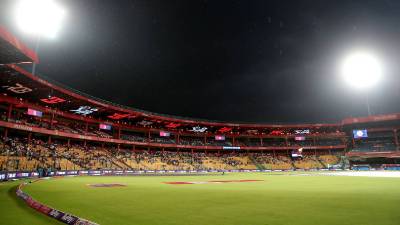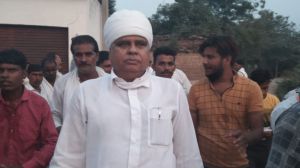Professional PM
If you8217;re wondering why Prime Minister Manmohan Singh demanded that New Delhi would take 8216;8216;another look8217;8217; at the fr...

If you8217;re wondering why Prime Minister Manmohan Singh demanded that New Delhi would take 8216;8216;another look8217;8217; at the free trade agreement with Thailand on the eve of the BIMSTEC meeting in Bangkok last week, then here8217;s a clue. The PM is said to have sent a somewhat terse message to the MEA about a month ago: I don8217;t want to know what I should say, I want to know what there is to know.
As sundry Joint Secretaries, used to giving big-picture briefings to Prime Ministers sat up in surprise, another message quickly reached them: Manmohan Singh wanted to be thoroughly briefed by the key territorial heads. Whether it was on Iraq, China, Pakistan, Nepal or the US, the PM wanted to know everything there was on the files.
Golden handshake
We shall meet again in the 8216;8216;golden autumn8217;8217;, China8217;s special representative on the border talks Dai Bingguo lyrically told his counterpart J N Dixit last week, after both sides went over a set of 8216;8216;guiding principles8217;8217; that had been formulated between the BJP government and Beijing. Now Comrade Dai was only reflecting China8217;s passion for both poetry and painting that seems to have persisted, despite the somewhat meticulous framework of the Chinese Communist Party that likes people to nicely fall in line.
By all accounts this round of border talks largely took place in the context of a senior leader from Beijing getting to know the new New Delhi. The realisation has dawned that things must move much more slowly and steadily than it was earlier thought, during the BJP rule. A visit by Chinese Prime Minister Wen Jiabao to India in the golden autumn, it was then believed, could have been used to make some radical announcements including a proposed East-West 8216;8216;swap8217;8217; of territory that essentially maintains the status quo. Comrade Wen is still likely to come 8212; but both governments will have to think up of alternative announcements.
Monsoon bonhomie
The persistent bonhomie between the people of India and Pakistan is having its impact on crusty officialdom. Water Resources Secretary V K Duggal was very pleased that his Pakistani hosts made it possible for him to travel to his place of birth in Sheikhupura, outside Lahore, after the water talks on the Wular Barrage/Tulbul project in Islamabad last week. Both sides signed a statement on the talks itself, but neither discussed the Baglihar dam that India is building on the Chenab.
Meanwhile, another way of looking at this glorious monsoon weather is that it has been ushered in by Pakistan Culture Secretary Jalil Abbas, who flew in on Monday to lead the culture talks. Problem is, there8217;s another man by the same name in the Pakistani delegation called Jalil Abbas Jilani, who as the highly popular director-general in charge of South Asia, is the pointperson for all conversations with India. Now the Pak media has been making the common enough mistake, stating that Jilani and not Jalil Abbas is the head of the delegation. The Culture Secretary is said to be a forgiving man, otherwise in South Asia8217;s terribly hierarchical system there could be hell to pay.
Farewell, gentle comrade
Few noticed the end of an era on July 14 in Moscow when the journalist Masood Ali Khan, 82, passed away in harness, writing an article, a fervent Communist to the last. He criticised the Communist Party of the Soviet Union as an insider on building a 8216;8216;socialist system8217;8217; in Central Asia bypassing the capitalist stage, which may have just ensured his fall from grace. He knew all the comrades, from Khruschev to S A Dange. In a close meeting with Khrushchev in 1962, Masood asked him about the Chinese attack on India. 8216;8216;If a comrade attacks a friend,8217;8217; Khruschev said, 8216;8216;obviously our sympathy would be with the friend.8217;8217; That8217;s how Masood broke the story about Moscow8217;s support for New Delhi during its humiliating little war with Beijing. Masood always persisted in the belief that socialism had a human face. He died gently, leaving behind a wife and two daughters.
- 01
- 02
- 03
- 04
- 05































